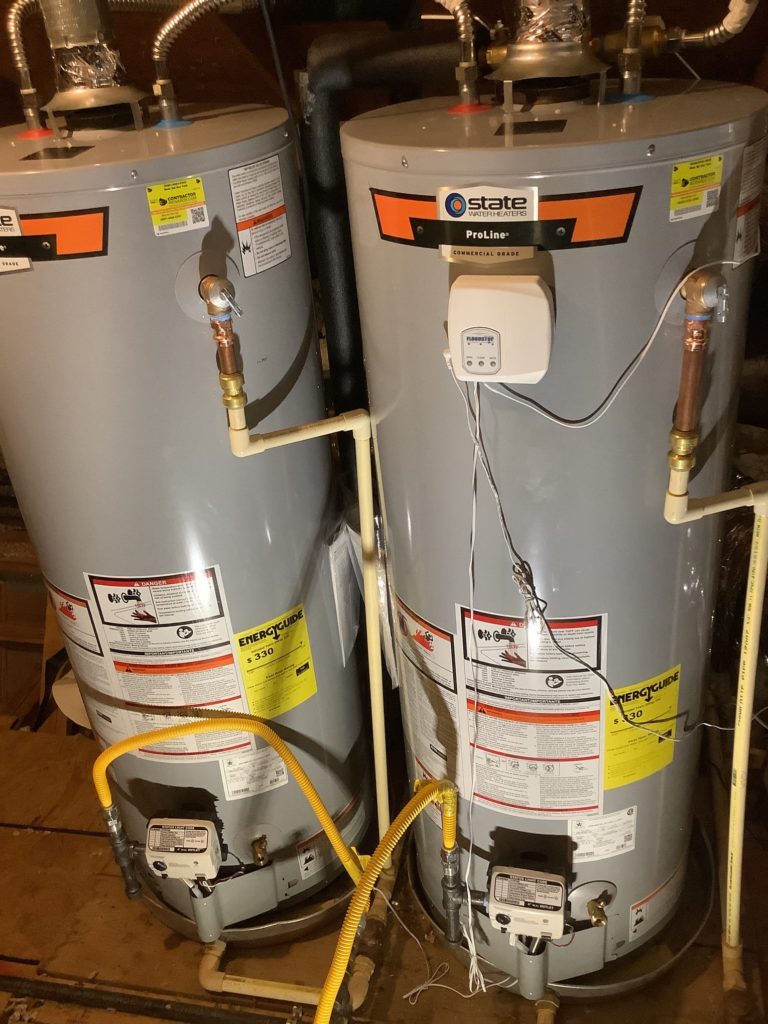The Importance of a Water Heater Flush

When it comes to maintaining a functional and efficient plumbing system, homeowners often overlook the importance of regular water heater maintenance. One crucial aspect of water heater upkeep is the periodic flush, a simple yet highly beneficial process that can significantly impact the appliance’s performance and lifespan. In this blog, we will explore the significance of water heater flushes and why they should be a top priority for every homeowner.
1. What is a Water Heater Flush?
Before delving into the reasons why water heater flushes are vital, let’s understand what this process entails. A water heater flush involves draining the sediment and mineral deposits that accumulate at the bottom of the tank over time. The accumulation of sediments can cause numerous issues, such as reduced efficiency, decreased heating capacity, and even potential damage to the unit.
2. Improved Efficiency and Energy Savings
When sediments settle at the bottom of the water heater tank, they create a barrier between the heating element and the water. As a result, the heater requires more energy to heat the water adequately. This can lead to increased energy consumption and higher utility bills. By flushing the water heater regularly, homeowners can eliminate these deposits, ensuring that the appliance operates at its highest efficiency, saving both energy and money.
3. Extended Lifespan of the Water Heater
Water heaters are not cheap investments, and no homeowner wants to replace them frequently. Routine flushes can significantly extend the lifespan of a water heater. When sediments are left unchecked, they can lead to corrosion of the tank, which may eventually cause leaks and irreparable damage. A well-maintained water heater can last several years longer than a neglected one, saving homeowners from the inconvenience and expense of premature replacement.
4. Improved Water Quality
Sediment buildup doesn’t only affect the efficiency of the water heater; it can also impact the quality of the water coming out of your faucets. Over time, sediments may break loose and find their way into your plumbing system, resulting in discolored or murky water. A water heater flush ensures that the water running through your home remains clear and free from any potentially harmful particles.
5. Reduced Risk of Costly Repairs
Regular water heater flushes can help identify potential issues early on. During the flush, a plumbing professional can inspect the unit for signs of wear and tear, leaks, or other problems. Detecting these issues early gives homeowners the opportunity to address them before they escalate into major and expensive repairs.
6. Health and Safety
In extreme cases, a neglected water heater can become a breeding ground for harmful bacteria. Flushing the water heater helps prevent the growth of dangerous pathogens that can pose health risks to your family. By prioritizing regular flushes, homeowners can ensure that the water supplied to their homes remains clean, safe, and suitable for everyday use.
Conclusion
Water heater flushes are not a luxury; they are a necessity to keep your plumbing system in top condition. The process is relatively simple, but its benefits are substantial. Improved energy efficiency, extended appliance lifespan, better water quality, and increased safety are just a few of the advantages of regular water heater flushes. To ensure your water heater operates optimally and lasts for years to come, schedule a flush with Schrader Plumbing at least once a year. Taking this proactive step will not only save you money in the long run but also provide peace of mind knowing your water heater is running efficiently and safely.
Categories: Water Heaters,By: Michelle Kurcina
Last modified:
Last Modified: July 31, 2023 at 4:22 pm


